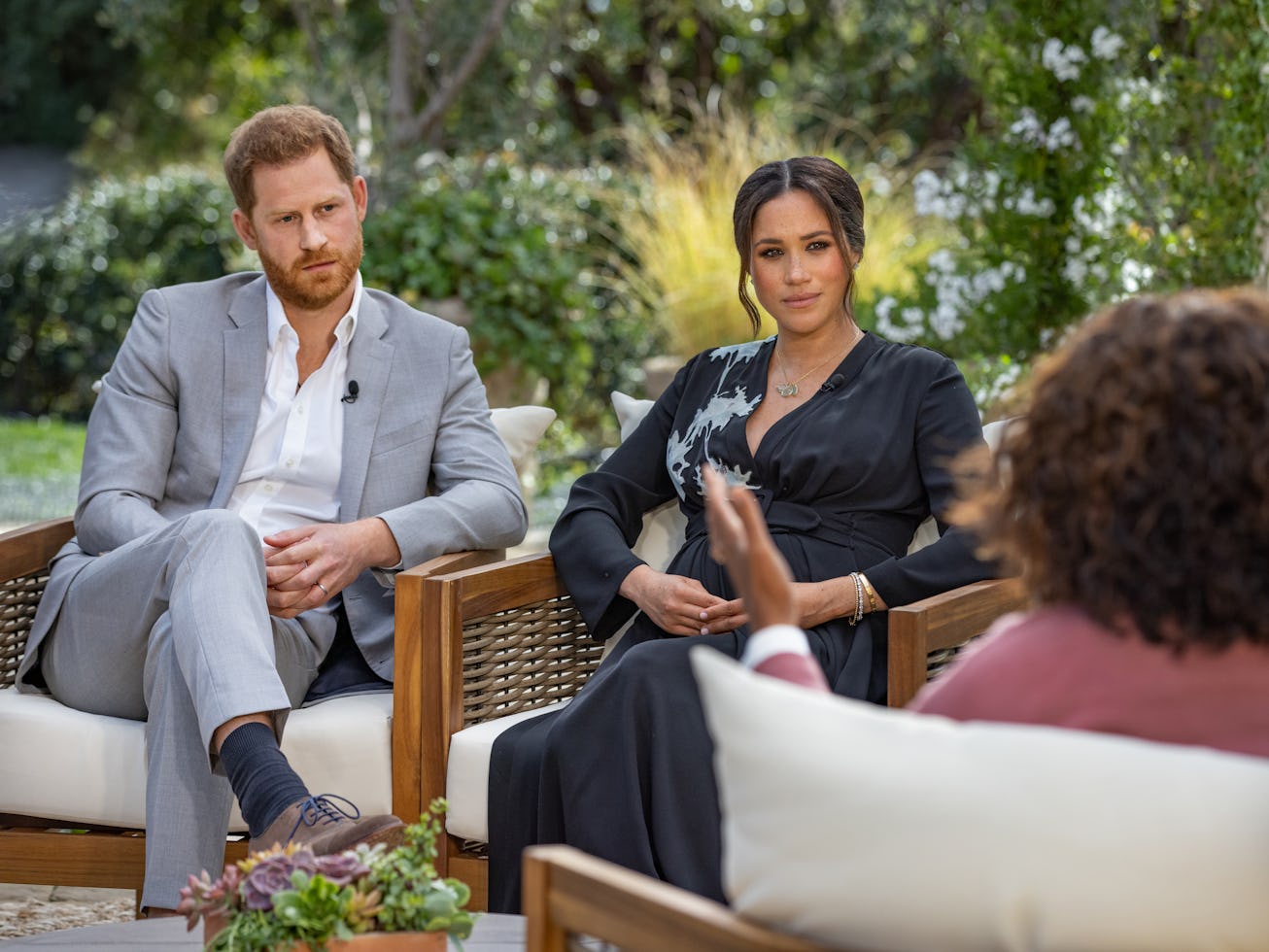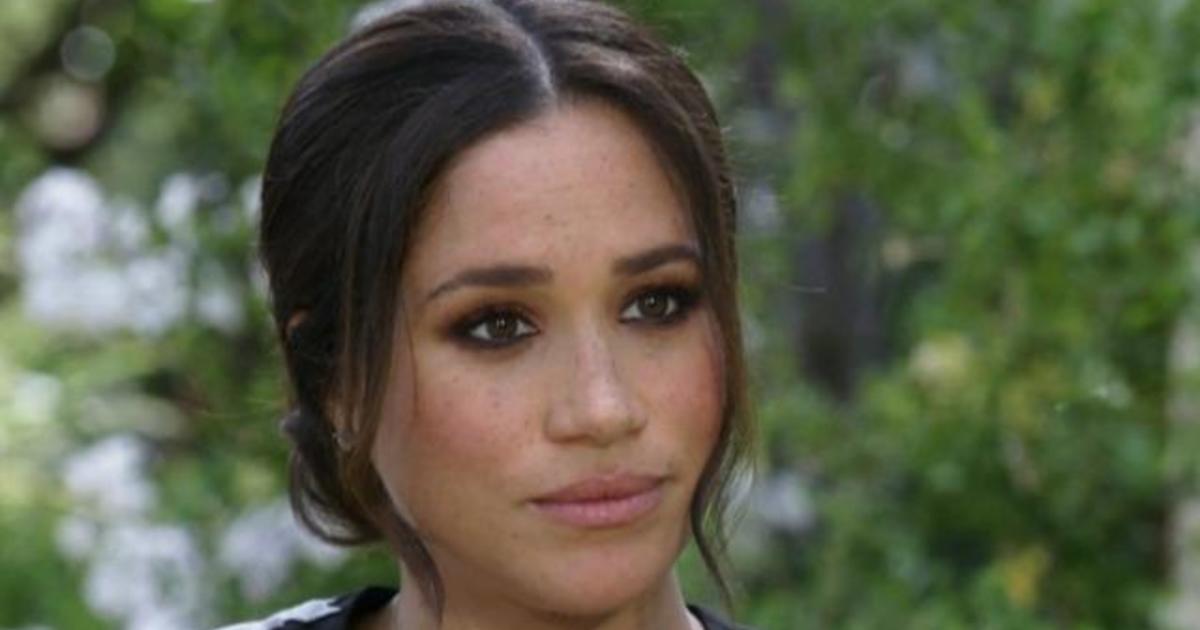
Entertainment
Meghan Markle Described Being Suicidal, Pregnant, And Denied Help By Palace
“They said, ‘My heart goes out to you, but there’s nothing we can do to protect you.'"
Meghan Markle and Prince Harry sat down with Oprah for a two-hour long CBS special on Sunday night, marking the couple's first interview since leaving their positions as senior members of the royal family. Much has already been made of the interview, which featured new insight from Markle about the both subtle and blatant racism she suffered from the British press and "The Firm" — parlance for the royal family and the institution supporting it.
Some of the biggest bombshells came from Markle, who disputed the widely reported story that she had made sister-in-law Kate Middleton cry, saying that in fact the future Queen of England had been the aggressor. Markle also shared an anecdote about an unnamed royal family member expressing concerns about the potential skin tone of Markle and Harry's one-year-old son, Archie.
In addition to reflections on racism, classism, sexism, and the destructively impersonal nature of powerful institutions, the interview also sparked an important conversation about mental health. In the first half of the interview, before Harry joined, Markle told Oprah that she experienced severe suicidal ideation during her pregnancy with Archie in 2019, due to the combination of constant, defamatory press coverage and a lack of genuine support from the monarchy.

“I just didn’t see a solution. I would sit up at night, and I was just — I don’t understand how all of this is being churned out,” she said about the media onslaught. “I realized that it was all happening just because I was breathing. I was really ashamed to say it at the time and ashamed to have to admit it to Harry, especially, because I know how much loss he’s suffered. But I knew that if I didn’t say it, that I would do it. I just didn’t want to be alive anymore. And that was a very clear and real and frightening constant thought.”
Markle added that her suicidal thoughts were “very clear,” “methodical,” and not “some abstract idea.” She said that when she asked "the institution" and the palace's human resources department for help, she was denied outright. “I said that I needed to go somewhere to get help and said that I’ve never felt this way before, and I need to go somewhere. And I was told that I couldn’t, that it wouldn’t be good for the institution,” Markle told Oprah. “They said, ‘My heart goes out to you, but there’s nothing we can do to protect you because you’re not a paid employee of the institution.’”
Markle noted how difficult coming forward about mental health issues can be, with the added hurdle of then being denied help only compounding her pain. She — and later Harry, who also spoke to the stigma and damaging silence surrounding mental health, especially within his own family — noted how much courage asking for help takes. The fact that his late mother, Princess Diana, went through similar experiences weighs heavy on Harry, and deeply impacted the way he responded to his wife.
"You know, for me, I'm just really relieved and happy to be sitting here, talking to you with my wife by my side because I can't begin to imagine what it must've been like for [my mother] going through this process by herself all those years ago," he told Oprah.
Markle hopes that sharing her story will inspire others to better understand mental health issues. She noted that the isolation she felt as a pregnant royal largely confined to her home brought on the feelings of loneliness and despair that many are feeling now due to COVID's disruption of normal life. With suicide rates among young people rising even before the pandemic, it's an important and timely conversation, no matter who's having it.
If you or anyone you know is experiencing depression or having thoughts of suicide, contact the National Suicide Prevention Lifeline at 1-800- 273-TALK (8255) or text “HELLO” to 741741.